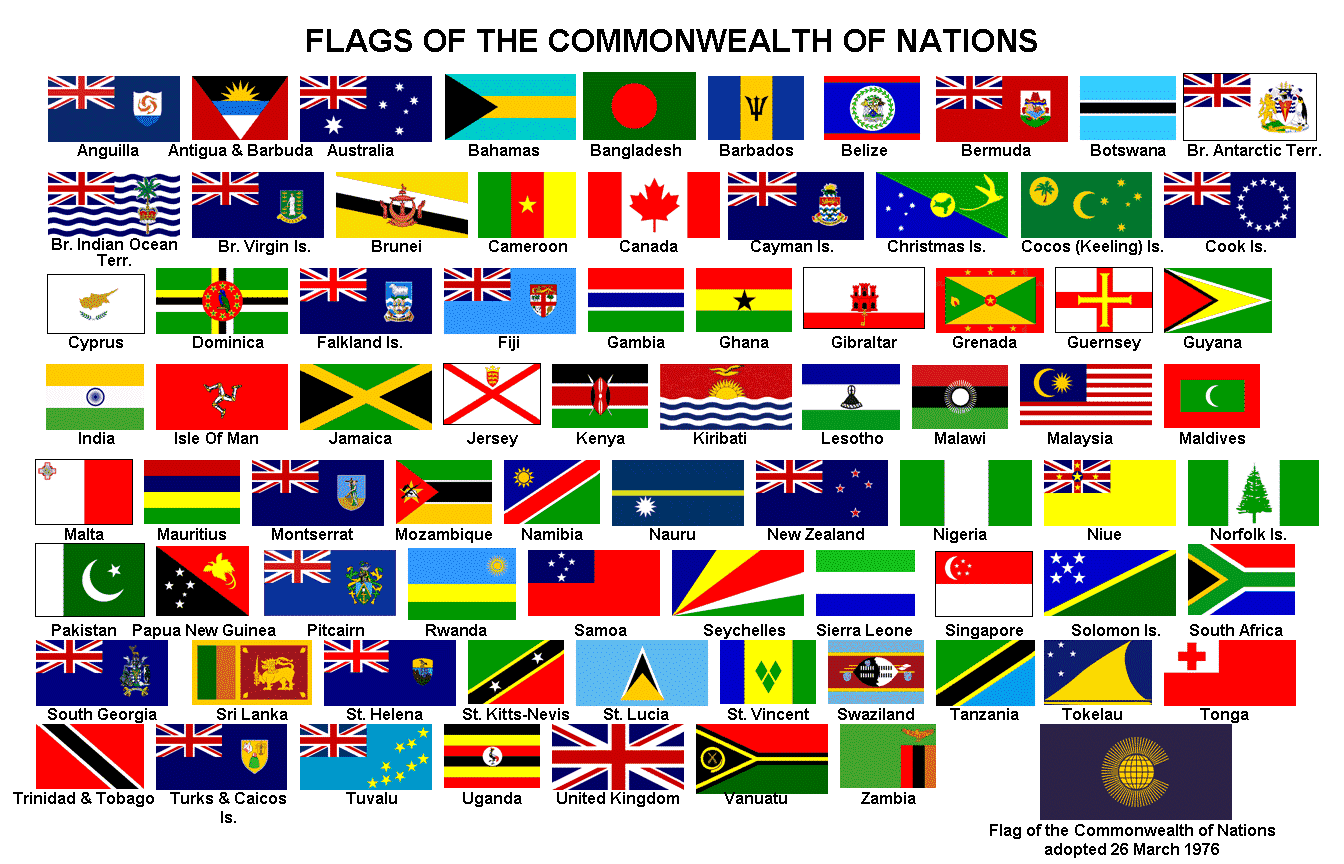The Commonwealth of Nations, commonly known simply as the Commonwealth, is a political association of 54 member countries, most of which are former territories of the British Empire. This unique organization serves as a platform for countries to collaborate, share values, and promote democracy, human rights, and development. In this article, we will dive deep into the various countries that make up the Commonwealth, their significance, and the role they play within this global network.
The Commonwealth is not just a relic of colonialism; rather, it has evolved into a significant entity that fosters relationships between its member states. Each country, regardless of its size or economic power, is equal in the Commonwealth, promoting a sense of unity and shared purpose. Through this article, we will explore the diverse nations in the Commonwealth, providing insights into their histories, cultures, and contributions to the organization.
Understanding which countries are part of the Commonwealth is vital for recognizing its impact on global politics, economics, and social issues. By the end of this article, you will have a comprehensive understanding of the Commonwealth's member countries and the benefits of being part of such a network.
Table of Contents
- What is the Commonwealth?
- History of the Commonwealth
- List of Commonwealth Countries
- Significance of the Commonwealth
- Commonwealth Structures and Initiatives
- Benefits of Commonwealth Membership
- Challenges Facing the Commonwealth
- The Future of the Commonwealth
What is the Commonwealth?
The Commonwealth of Nations is a political association of 54 member countries, most of which were formerly part of the British Empire. The organization promotes shared values such as democracy, human rights, and the rule of law. It provides a platform for member states to work together on various issues, including economic development, education, and environmental sustainability.
History of the Commonwealth
The Commonwealth has its roots in the British Empire, with its formation dating back to the early 20th century. The Statute of Westminster in 1931 marked a significant turning point in the relationship between Britain and its dominions, granting them legislative independence. The Commonwealth evolved further post-World War II, as many nations gained independence, leading to the reformation of the organization.
Key Milestones in Commonwealth History
- 1931: Statute of Westminster grants autonomy to dominions.
- 1949: The London Declaration establishes the Commonwealth as a voluntary association.
- 1965: The Commonwealth Secretariat is established to facilitate cooperation.
- 1991: The Commonwealth of Nations is formally recognized.
List of Commonwealth Countries
Here is a comprehensive list of the countries that are members of the Commonwealth:
| Country | Year of Membership |
|---|---|
| Australia | 1901 |
| Canada | 1867 |
| India | 1947 |
| United Kingdom | 1926 |
| New Zealand | 1907 |
| South Africa | 1910 |
| Nigeria | 1960 |
| Pakistan | 1956 |
| Bangladesh | 1972 |
| Jamaica | 1962 |
| Singapore | 1965 |
| Malaysia | 1957 |
| Kenya | 1963 |
| Ghana | 1957 |
| Barbados | 1966 |
| Malawi | 1964 |
| Gambia | 1965 |
| Sri Lanka | 1948 |
| Tanzania | 1964 |
| Uganda | 1962 |
| Zimbabwe | 1980 |
| Fiji | 1970 |
| Cyprus | 1961 |
| Malta | 1964 |
Significance of the Commonwealth
The Commonwealth plays a crucial role in promoting international cooperation and understanding among its member states. It serves as a platform for dialogue and collaboration on issues such as climate change, education, and health, fostering a sense of solidarity among diverse nations.
Key Areas of Focus
- Promoting democracy and good governance.
- Enhancing economic development and trade.
- Supporting education and youth empowerment.
- Encouraging sustainable development and environmental protection.
Commonwealth Structures and Initiatives
The Commonwealth has various structures and initiatives aimed at facilitating cooperation among member states. The Commonwealth Heads of Government Meeting (CHOGM) is a biennial event where leaders discuss pressing global issues. Additionally, the Commonwealth Secretariat coordinates activities and provides support to member countries.
Commonwealth Initiatives
- Commonwealth Games: A multi-sport event held every four years.
- Commonwealth Youth Programme: Focused on empowering young people.
- Commonwealth Fund for Technical Cooperation: Provides assistance to member states.
Benefits of Commonwealth Membership
Being a member of the Commonwealth offers numerous benefits, including access to a vast network of resources, shared knowledge, and opportunities for collaboration. Member countries can leverage their collective strength to address common challenges and promote their interests on the global stage.
Advantages of Commonwealth Membership
- Access to development assistance and funding.
- Opportunities for trade and investment.
- Collaboration on research and innovation.
- Support for education and capacity building.
Challenges Facing the Commonwealth
Despite its many advantages, the Commonwealth faces challenges that could hinder its effectiveness. Issues such as political instability in member states, economic disparities, and differing cultural values can create friction within the organization.
Addressing Challenges
- Promoting inclusivity and understanding among member states.
- Strengthening the mechanisms for conflict resolution.
- Enhancing economic cooperation and integration.
The Future of the Commonwealth
The future of the Commonwealth depends on its ability to adapt to changing global dynamics. By embracing innovation and inclusivity, the Commonwealth can continue to thrive and play a vital role in international relations.




